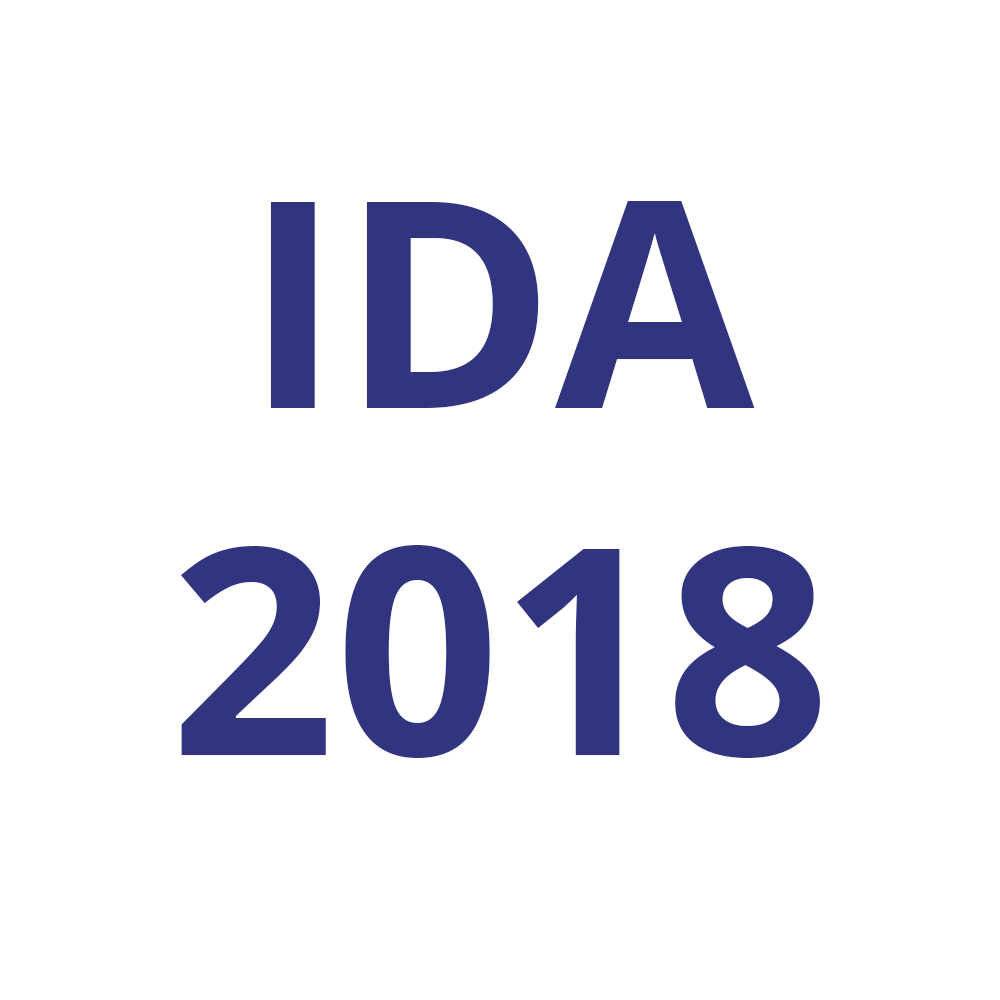The IDA 2018 symposium seeks to showcase work that goes beyond established boundaries and offers genuinely novel, potentially game-changing ideas in the field of data analysis. Complementary to other mainstream conferences in data science, IDA’s mission is to promote ideas over performance: a solid motivation can be as convincing as exhaustive empirical evaluation. To this end, IDA creates an open atmosphere that encourages discussion and promotes innovative ideas in data analysis.
New format
To accomplish this, IDA 2018 is offering new submission and presentation modalities, as well as new acceptance criteria and reviewer guidelines. We solicit full papers, short papers, posters, short videos, and slide decks. All submissions, of all types, will be peer reviewed following criteria that emphasize novelty and relevance over other factors. Further, any paper for which at least one Program Committee Advisor writes an informed, thoughtful, and positive review will be accepted irrespective of other reviews.
Further, the meeting format is designed to foster interaction and discussion. In particular, presentations are scheduled in a single track, with plenty of time for the kinds of interaction that can be catalysed by innovative work and the presence of scientists from diverse backgrounds.
Publication of Contributions
The mode of publication depends on the type of contribution:
- FULL PAPERS (10-12 pages) will be published in a volume of Springer’s Lecture Notes in Computer Science (LNCS) series;
- SHORT PAPERS (2-9 pages), POSTERS, and SLIDE DECKS will be published on the IDA website;
- VIDEOS (2-5 minutes) will be published on the IDA YouTube channel.
For all accepted contributions, the authors may choose to opt out from publication.
Topics of Interest
IDA is open to all kinds of data modelling and analysis approaches, irrespective of discipline or domain. The novelty sought after can be in new theory, in new algorithms and techniques, and/or in a novel application, e.g., in established technology that is applied in novel ways to analyzing and/or modelling a real-world problem or system, or innovative application driven data science projects.
Topics of interests for the symposium include, but are not limited to:
Algorithms and techniques
- Data acquisition, integration, and cleaning
- Data and/or model visualisation
- Exploratory data analysis
- Interactive data analysis
- Human computation, citizen science
- Knowledge acquisition and knowledge-based analysis
- Computational models of human learning
- Computational creativity
- Supervised learning (classification, regression, …)
- Unsupervised learning and induction
- Statistical pattern recognition and analysis
- Model specification, selection, estimation
- Performance and optimization, big data
- Uncertainty and noise in data
- Online and incremental learning, data streams
- Analysis of structured and unstructured data
- Information retrieval
Theoretical contributions
- New IDA paradigms
- Data mining theories
- Innovative data analysis and models
- Privacy and legal issues in data analysis
- Theoretical IDA issues
Applications and systems
- Applications in commerce, finance, legal, public policy, …
- Applications in engineering, manufacturing, …
- Applications in bioinformatics, medicine, nature conservation, …
- Applications in mobile, crowd-sourced data, …
- Applications in digital humanities, computational social sciences, …
- Applications in other complex, dynamical systems
- Evaluation of IDA systems, experimental design
- IDA systems and tools
- Human-computer interaction in IDA
- Visualisation and dissemination of results

